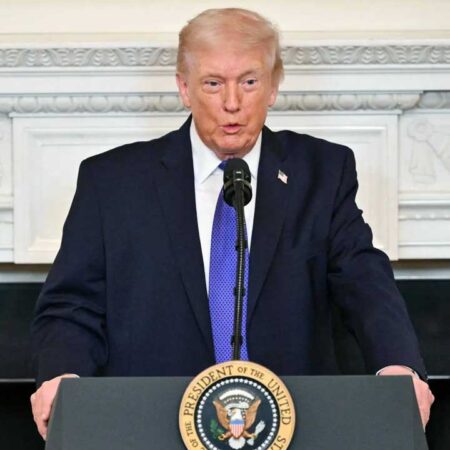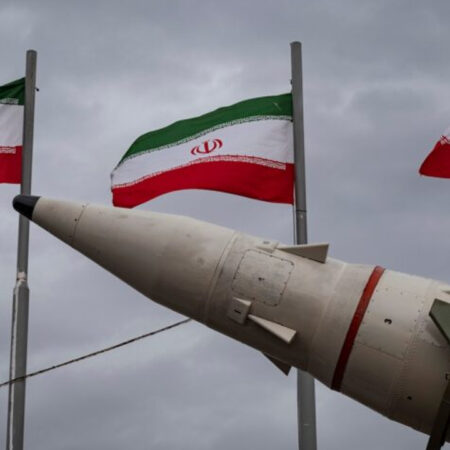
The International Monetary Fund (IMF) announced on Saturday that it and the government had reached a consensus on the necessity of giving “greater social and development responsibilities to provinces,” one day after ending its staff visit to Pakistan.
The unplanned visit, which took place from November 12 to November 15, covered a $7 billion bailout that would be approved by the IMF board in six weeks. However, it was too early for the Extended Fund Facility (EFF) first review, which is scheduled for the first quarter of 2025.
With a rare revision of fiscal data that changed Punjab from a deficit province to a cash surplus province just two weeks ago, Pakistan-IMF talks came to an end on Friday under strict secrecy from both parties.
“We agreed with the need to continue prudent fiscal and monetary policies, revenue mobilization from untapped tax bases, while transferring greater social and development responsibilities to provinces,” said Nathan Porter, the head of the IMF mission, in a statement released on Saturday to mark the end of the mission.
In September, the Executive Board of the Fund had also emphasized “broadening the tax base.”
The IMF was “encouraged by the authorities’ reaffirmed commitment to the economic reforms supported” by the 2024 EFF, Porter said in a statement today.
“Reduce vulnerabilities and lay the basis for stronger and sustainable growth,” he said, describing talks on economic policy and reform initiatives with Pakistani authorities as positive.
To restore the sector’s viability, the IMF official emphasized the importance of “structural energy reforms and constructive efforts.”
Amid growing concerns about a possible default-like scenario in Pakistan State Oil (PSO) and two gas companies, the IMF and the government were reportedly at odds over energy sector issues during the recent talks.
Additionally, Porter called on the government to “take steps to enhance competition and decrease state intervention in the economy, which will help foster the development of a dynamic private sector.”
An effective program implementation could result in a “more prosperous and more inclusive Pakistan, improving living standards for all Pakistanis,” the IMF official emphasized.
“In the first quarter of 2025, the next mission related to the first EFF review is anticipated,” the statement said.
Due to decades of boom-bust economic cycles, Pakistan has required 23 IMF bailouts since 1958.
The country’s wish to expand the size of its loan program and climate financing—for which Pakistan has applied for an additional loan of $1.2 billion—were also topics of discussion during a final meeting with the Pakistani team on Friday, which was chaired by Finance Minister Muhammad Aurangzeb.
Provinces were now directly involved in discussions with the IMF under a loan program for the first time.
According to officials, Pakistan has until February 2025 to make up for revenue shortfalls totaling Rs190 billion during the first four months (July to October) of the current fiscal year. Sources stated that the IMF mission would provide the authorities with its formal feedback in a few days.
By the end of February or the beginning of March, formal review discussions on biannual targets would be set up to ascertain whether Pakistan was eligible to receive a $1 billion tranche, contingent on meeting structural benchmarks.
Provinces are discussed
Following the Punjab government’s announcement that it ended the first quarter of FY25 with a cash surplus of Rs40 billion rather than the Rs160 billion deficit that was previously reported, it became clear at the end of the engagements that Pakistan had achieved yet another quarterly target for provincial cash surplus.
Nevertheless, out of the three provinces that had already fulfilled their cash surplus obligations, Punjab had the lowest surplus of Rs40 billion.
According to sources, smaller provinces opposed the IMF’s intention to withdraw from the wheat support price or subsidized issue price, arguing that it might lead to issues with food security, especially in developing markets like Khyber Pakhtunkhwa and Balochistan, in contrast to the IMF staff’s projected prices.
The IMF team pledged to support technical consultants for agriculture tax, higher education, the Benazir Income Support Program, and the devolution of federal funds to provincial development projects. They also seemed willing to acknowledge the challenges faced by the provinces, especially those related to capacity constraints.
According to reports, Sindh has not yet made a decision regarding how to pay for these extra obligations.











No Comment! Be the first one.